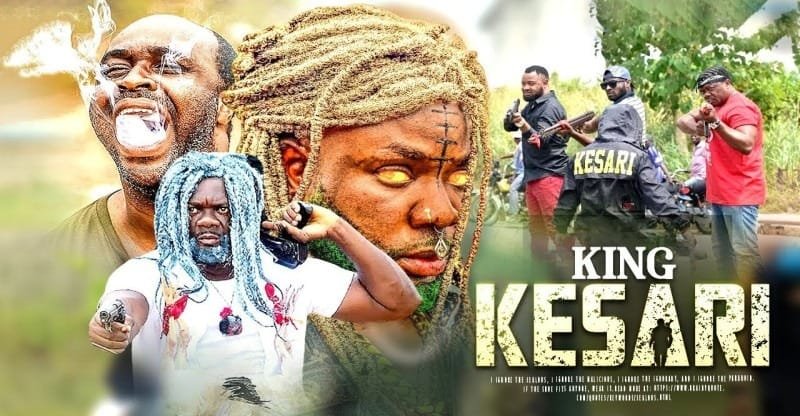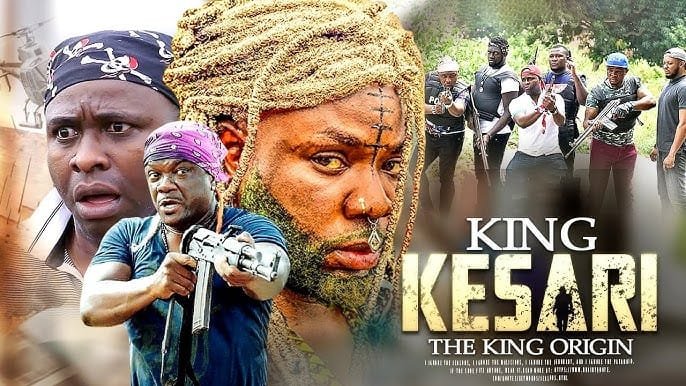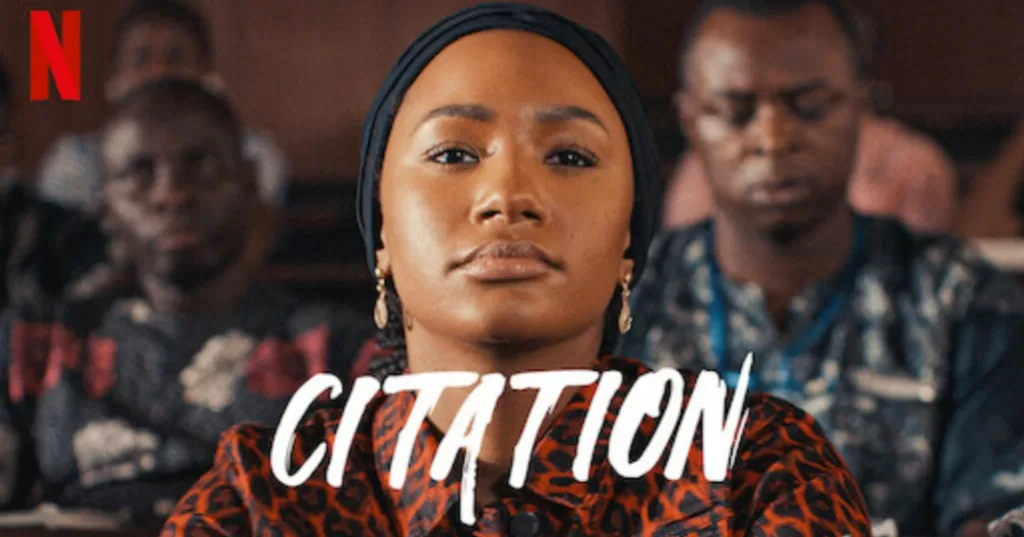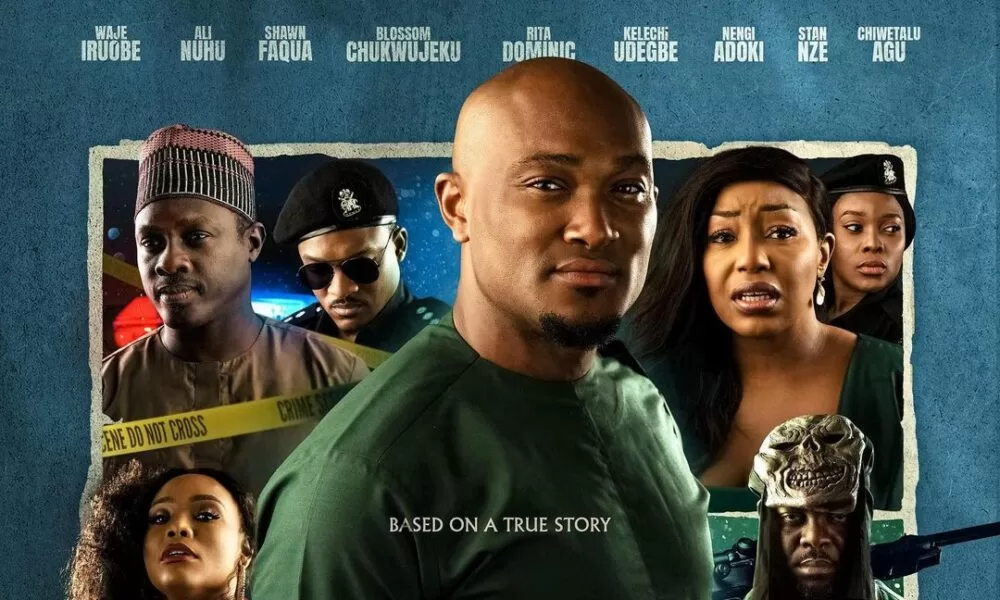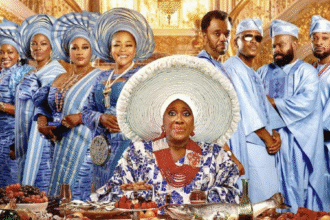Késárí The King, a recently added movie on Netflix directed by Yekini Ibrahim and Tope Adebayo, can be described in one sentence as a colossal waste of time and production funds. While the movie initially seemed extremely promising, it quickly plunges audiences into a world of inconsistencies and lacks any substantial plot twists. Késárí The King tells the story of a self-acclaimed deity summoned to earth by a father’s cry for vengeance. Upon Kesari’s emergence into the world of mankind, he faces the reality of remaining on earth, leading to a series of events that unfold during the course of the movie.
Plot
Késárí The King opens with a thrilling scene rich in culture, action, and drama, featuring a gang of men whose identities are not clearly stated holding an old man, his young daughter, and some villagers hostage. This initial scene leads to a series of confusing events.
The gang oppresses new villagers, forcing them to strike a deal where they must provide slaves every six months as a form of tribute. When the old man fails to meet this demand, the gang members portrayed by Deyemi Okanlawon, Odunlade Adekola and others, exact their debt in the blood of his innocent daughter.
These scenes raised many questions in the minds of the audience, as the relevance of most events was unclear. One would have expected the film to focus on the old man’s quest for revenge, but this was not the case. When the old man took his deceased daughter to the dwelling place of the deity Késárí and cried out for revenge, Késárí answered his call and angrily proceeded to eliminate all the gang members involved in the young girl’s death.
After experiencing the taste of war, Késárí refused to return to his dwelling place and decided to remain on earth. He achieved this by being reborn through a pregnant woman.
When Késárí was born, spiritual leaders and herbalists sensed his presence. They visited Késárí‘s earthly father, who was also a traditional herbalist, to inquire about the mysterious newborn with a “talking drum” that audiences did not get to see, around his neck and the supernatural powers of a deity.
Fast forward 15 years, Késárí is now grown up and in love with a village girl. His immense powers, accompanied by anger and rage, led to an altercation with his father. This conflict causes him to transform into a headstone made of pure gold, attracting the attention of the local police and town robbers. This leaves viewers wondering, “How did we get here?”
Upon hearing about the gold headstone, the town gang members decided to plan a heist to steal it, leading to a series of chaotic events that resulted in Késárí recruiting them as his men to play the role of “Robin Hood”, where they steal looted funds and share them to the masses in the community.
Despite the rich cultural heritage portrayed in the movie, the attempt to create a masterpiece of a traditional action thriller was a total misfire. The film’s narrative is plagued by disjointed scenes and a lack of coherence. While the cultural elements add depth, they are overshadowed by the poorly executed plot. Overall, ‘Késárí’ fails to deliver a satisfying or engaging story.
Cast
Késárí The King boasted a talented ensemble cast, comprising actors who have excelled in their respective careers. However, the film fell short of harnessing the full potential of these seasoned performers.
Odunlade Adekola and Deyemi Okanlawon adeptly embodied the characters of Yoruba traditional gangsters, captivating the audience effortlessly. Yet, their roles were disappointingly brief, leaving viewers longing for more development as the movie unfolded.
Bolaji Ogunmola’s portrayal added depth to the character, contributing to the overall richness of the film’s performances.
The movie also featured other seasoned actors like Kelvin Ikeduba, Debo Adebayo, and Yvonne Jegede, who brought a level of authenticity and skill that elevated the movie’s narrative.
Language
Most viewers will undoubtedly appreciate the prominent use of the Yoruba language throughout the film. The incorporation of profound Yoruba proverbs not only enhances the beauty of the dialogue but also enriches the depth of the storyline, offering a culturally immersive experience.
Additionally, the seamless integration of traditional incantations, songs and wise sayings serves to further engage and captivate the audience, contributing to the film’s overall appeal.
Final take
Despite its numerous unnecessary and inconsistent scenes lacking major plot twists, Késárí The King partially redeemed itself with commendable efforts put into its cinematography midway through the film. However, the initial promise of exploring the rich Yoruba culture and tradition quickly devolves into confusion and disappointment as the audience is subjected to explicit scenes of nudity, including a deity engaging in explicit interactions in a strip club with a stripper.







